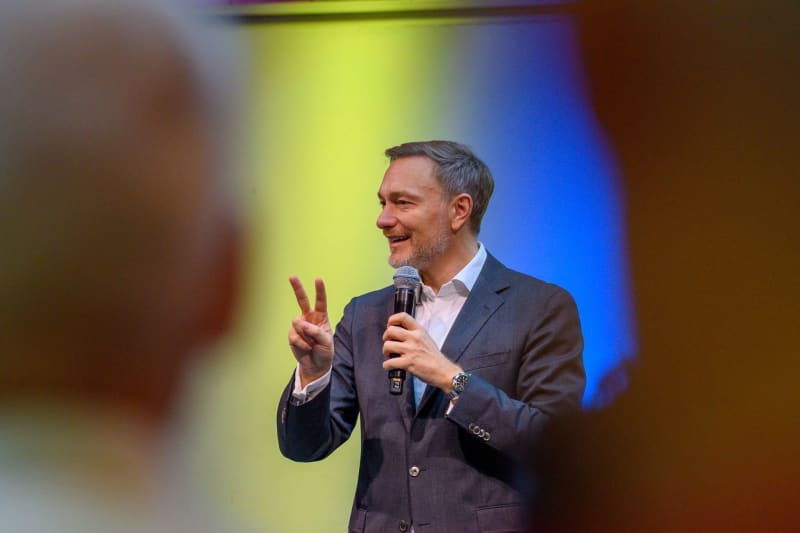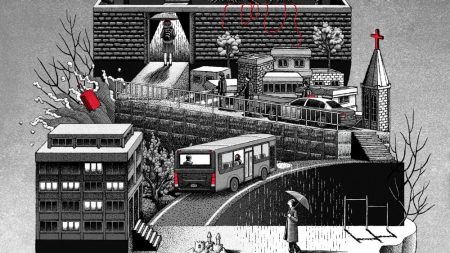Germany’s FDP Rules Out Coalition with Greens, Setting the Stage for Political Shift
FDP’s Decision to Distance from Greens
In a significant move that could reshape Germany’s political landscape, the Free Democratic Party (FDP), led by former Finance Minister Christian Lindner, has decided to rule out forming a coalition with the Greens after the upcoming elections on February 23. This decision underscores the growing tensions between the two parties, which were part of Chancellor Olaf Scholz’s three-party coalition that collapsed in November. The FDP’s leadership is expected to formalize this stance in an election appeal, which will be confirmed by delegates at a special party conference on Sunday.
Reflecting on Past Coalition Challenges
The FDP’s decision to distance itself from the Greens is rooted in the difficulties experienced during their previous partnership. A draft of the FDP’s election appeal, as seen by dpa, criticizes the Greens for "blocking or delaying many necessary measures for growth, order in migration, and trust in personal responsibility instead of paternalism." This reflects the ideological differences and practical challenges that arose during their time in government together. The FDP, known for its pro-business and free-market stance, found itself at odds with the Greens’ more progressive environmental and social policies.
FDP’s Strategic Shift Toward Center-Right Alliance
As the FDP seeks to redefine its political strategy, it has set its sights on a potential alliance with the center-right CDU/CSU bloc. However, achieving this goal is not without its challenges. The party is currently hovering around 4% in the polls, just below the 5% threshold required to secure seats in the Bundestag. Despite these difficulties, the FDP remains optimistic about its chances, viewing the upcoming election as a "directional decision" that could set the course for Germany’s future. The party’s leadership is banking on its ability to appeal to voters who prioritize economic stability, migration control, and a more efficient state.
The High Stakes of the February 23 Election
The FDP is framing the February 23 election as a critical moment for Germany, with far-reaching implications for the country’s economic and political trajectory. In its election appeal, the party warns that if the next legislative period fails to deliver an economic upturn, restore order in migration, and improve state efficiency, there could be significant consequences. "If liberal democracy fails to deliver, more people could look for an alternative to democracy, as in our neighboring countries," the appeal cautions. This stark warning highlights the FDP’s belief that the upcoming election is not just about political power but about the future of democratic governance in Germany.
Implications for Germany’s Political Landscape
The FDP’s decision to rule out a coalition with the Greens and its focus on partnering with the CDU/CSU bloc represents a strategic shift in Germany’s political landscape. This move could potentially weaken the influence of the Greens, who have been a key player in German politics in recent years. At the same time, it opens the door for the center-right CDU/CSU bloc to regain influence, potentially leading to a more conservative direction for the country. The FDP’s emphasis on economic growth, migration control, and state efficiency also signals a return to more traditional liberal priorities, which could resonate with voters who feel that the current government has not adequately addressed these issues.
A Call to Action for Voters
As the election approaches, the FDP is urging voters to consider the long-term consequences of their choices. The party’s appeal serves as a call to action, urging voters to support a vision of Germany that prioritizes economic prosperity, order, and personal responsibility. By framing the election as a "directional decision," the FDP is seeking to mobilize support from voters who share its vision and are concerned about the potential alternatives to liberal democracy. Whether this strategy will resonate with voters remains to be seen, but one thing is clear: the outcome of the February 23 election will have a profound impact on Germany’s political future.









